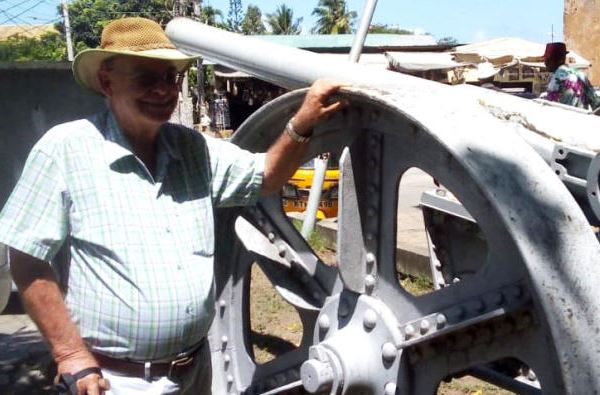×
The Standard e-Paper
Smart Minds Choose Us

Veteran hotelier and war historian James G. Wilson at the entrance of Fort Jesus Museum in Mombasa. [Robert Menza, Standard]
James G Wilson has worked hard to create awareness of Kenya’s world war battlefields. The retired hotelier has a deep interest in documenting war history.